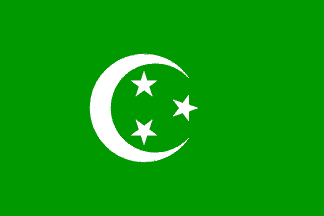Egypt
From Kaiserreich
| ||||
| Anthem As-Salaam Al-Malakey Al-Misry | ||||
| Official Language | Arabic | |||
| Capital | Cairo | |||
| Head of State | Abbas II | |||
| Head of Government | Ali Mahir Pasha | |||
| Establishment - First Dynasty | c.3150 BC | |||
| - Independence from United Kingdom | 28 February 1922 | |||
| Government | Constitutional Monarchy | |||
| Currency | Egyptian pound | |||
| Area | 3 508 263 km² | |||
| Population | About 21 millions | |||
Egypt, also known as Egypt-Sudan, is a country in north-east Africa. It borders the Mediterranean to the north, the German held Suez Canal to the east, Abyssinia to the southeast, Mittelafrika to the south and National France and Libya to the west.
Contents |
History
The History of modern Egypt conventionally begins from 1882 when Egypt became part of the British sphere of influence in the region, a situation that conflicted with Egypt's position as part of the Ottoman Empire. In 1914 the Protectorate was made official, and the title of the head of state, which had changed from pasha to khedive in 1867, was changed to sultan, to repudiate the vestigial suzerainty of the Ottoman sultan, who was backing the Central powers in the Weltkrieg. Abbas II was deposed as khedive and replaced by his uncle, Husayn Kamil, as sultan. Upon his death in 1917, his only son, Prince Kamal al-Din Husayn, declined the succession, and Husayn Kamil's brother Ahmed Fuad ascended the throne as Fuad I. With the signing of the Peace with Honour, Egypt remained under British control. However, Arab nationalism led to violent riots which convinced the British to unilaterally declare Egyptian independence in 1922, abolishing the protectorate and establishing an independent Kingdom of Egypt. Britain retained control of the Canal Zone, Sudan and Egypt's external protection. When the 1925 British Revolution broke out, Egypt occupied Sudan, but was forced to give control over the Suez Canal to Germany. Fuad I, who was seen as a British puppet, was forced to flee and was replaced by its predecessor and nephew Abbas II. With the decline of the Ottoman Empire in recent years, Arab nationalism is on the rise and the Egyptian government decided to organise a Congress of Arab Nations, the first one of which will be held in 1937. Some observers believe that together with Hashemite Arabia, they might try to free the Arabs still living under Ottoman rule.
Politics
King of Egypt: H.R.H. Abbas II
Prime minister: Ali Mahir Pasha
Minister of Foreign Affairs: Wasef Boutros Ghali
Minister of Finance: Muhammad Mahmoud Pasha
Minister of Security: Mustafa an-Nahhas Pasha
Head of Military Intelligence: Pierre Lacau
Chief of Staff: Hassan Sabry Pasha
Chief of Army: Hassan Sirry Pasha
Chief of Navy: Abdallah Ziwar Pasha
Chief of Air Force: Abdelhamid Soliman
Military
The Royal Egyptian Army has the duty to defend long borders with the neighbouring countries. It comprise five infantry divisions and three cavalry divisions, together with a couple of reserve militias and one garrison.
The Royal Egyptian Fleet consist of five heavy cruisers, three light cruisers and two destroyers. The Royal Egyptian Air Force was recently formed, but it is still training its pilots and cannot provide air cover yet.
Foreign relations
Friendly relations Hashemite Arabia.
Unfriendly relations with Ottoman Empire, Libya, Germany and Mittelafrika.

39.gif)
